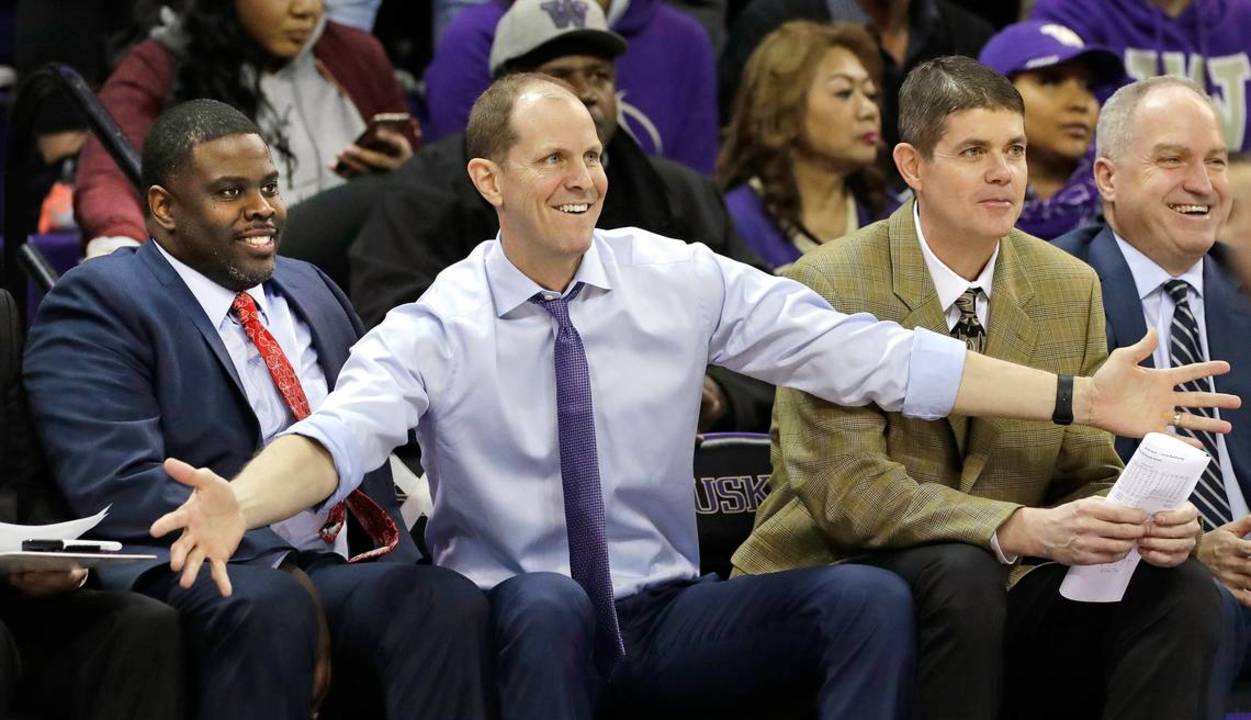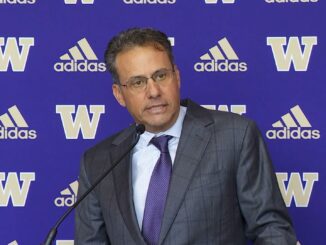
The Washington Huskies defense has become synonymous with success over the last five years. Even through player turnover and new faces budding on campus, the results remain the same.
While UW has revamped its recruiting game and brought in top-tier talent, most of the successes of this unit comes down to one man, defensive coordinator Jimmy Lake. This article is going to examine who Lake is and what makes him arguably the best assistant coach in college football.
College
Lake played his college ball at Eastern Washington University and graduated with a degree in business administration. On the field he played safety for the Eagles and was on the 1997 team that made the national semifinals.
This could have been the end of his football life, but multiple Eastern coaches recommended he consider coaching, and he became a graduate assistant the next season.
“I thought I was going to go off and run my own company,” he said, per The News Tribune’s Christian Caple.
Upon finishing his degree in 2000, Eastern’s head coach, Paul Wulff, hired him to become a defensive backs coach.
Coach Lake
Lake remained the defensive backs coach for four years before leaving to assume the same position at UW in 2004. The Huskies finished 1-10 with one of the worst teams in program history, and the whole coaching staff got the boot, him included.
He also shared a secret of the coaching industry. “When you get fired, you usually have to pack yourself. When you get hired, someone comes and packs your stuff up for you.”
Lake experienced a couple more setbacks, including losing his position with two NFL teams, the Detroit Lions in 2008, and the Tampa Bay Buccaneers in 2011, before ultimately landing on his feet as defensive backs coordinator at Boise State. At BSU, he met and worked under Head Coach Chris Petersen.
The Broncos’ national success under Petersen raised his coaching profile, and he eventually drew offers from big conference schools landing at the University of Washington in 2013. Lake learned of Petersen’s departure via his iPad, and before he even had time to react, his phone rang and Peterson asked him to follow him to Seattle. The duo remained intact and the results speak for themselves.
Dawg’s Defense
Since Lake’s emergence at Montlake, UW has had one of the most feared defenses in the Pac-12. The Huskies have played in New Year’s Six bowl games the last three seasons in large part due to his stingy unit. Washington ranked 6th in the nation last year allowing 17.4 points per game. Over the past three seasons, the Dawgs have only given up 15.3.
One of the reasons his defense may thrive is because of his balanced philosophy. In an interview in 2018, he stated that he wants his team to understand situational football. He then added, “we’re gonna play fast, we’re gonna play physical, we want to play a violent style of football.”
Another aspect of an elite college football coach is developing young players and helping them get to the highest level. Since his emergence, the Dawgs have sent numerous defensive backs to the NFL including Budda Baker, Sidney Jones, and Kevin King.
This drive to succeed extends beyond the football field into his everyday life. Sometimes he races his wife home after eating at a restaurant. His youngest son always chooses his dad’s car because he knows he is going to win. And when he’s victorious, he likes to talk a little smack and let his wife hear about it.
“I’m definitely very competitive,” he said in The News Tribune, with a fun-loving smile on his face.
Salary
In the past few off-seasons there have been rumors swirling about him accepting a position at a traditional football powerhouse such as Alabama.
The UW athletic department undoubtedly heard this same chatter and immediately gave him a raise, making him the highest-paid assistant coach in the conference. On Feb 1, he signed a three-year extension with the Dawgs and an annual salary bump. This season he is set to make $1.4 million, then $1.5 million the following year, and $1.7 million in 2021.
The Huskies are fortunate to keep him around because the defensive unit lost nine of its eleven starters from last year. For most coaches, this is a death sentence; for him it’s an opportunity to re-brand his “Death-Row” defense.
This upcoming season may be his toughest challenge at Washington. But don’t bet against him—he’ll still have Pac-12 offenses bowing down to UW.




